Andre Dubus III appeared on The Bat Segundo Show #218. Dubus is most recently the author of The Garden of Last Days.
Condition of the Show: Plagued by decaying verdure and intrusive catering managers.
Author: Andre Dubus III
Subjects Discussed: The propinquity of Roman numerals after surnames, Richard Flanagan’s The Unknown Terrorist, Heinrich Böll, books being categorized as post-9/11 novels, on letting a book go after publication, political novels, writing longhand in cars, Tobias Wolff, the car as shared confessional experience, Flannery O’Connor, writing as a dreamworld, verisimilitude, getting an approximation of an outsider’s character or experience, “White Trees, Hammer Moon,” prison, capitalism, serial description in a declarative sentence, considering the reader, realism vs. postmodernism, self-indulgence in writing, Blaise Pascal, the dangers of the author pleasing himself, taking twenty-five years to write a novel, Dubus’s beverage motif, whether or not specific details in a novel are symbolic, the advantages that come from confined and sustained narratives, sensuality, writing in short sustained bursts, vicarious moral outrage, poems and Books on Tape, T.S. Eliot’s The Waste Land, an interruption by a catering manager, Dubus’s early life bumping around, the responsibilities of a novelist, honesty, novelists who impose endings on books, fiction as a pack of lies vs. fiction as truth, Picasso, sincerity, characters who become truer than real people, and the absence of fathers and husbands in The Garden of Last Days.
EXCERPT FROM SHOW:
Correspondent: I had to remark on the beverage motif throughout this book. We open this book with, of course, April having a plastic coffee cup with her legs. And then two hundred, three hundred pages in, we see the cop with the #1 GRANDDAD mug. And then we also have Virginia heating a cold cup of coffee in the microwave. So…
Dubus: Ho ho! This is brilliant, man. (laughs)
Correspondent: But the concern for coffee in this is rather extraordinary! Because coffee is almost this life force of good versus the drinking one sees from the antagonists in this book. All the antagonists tend to drink. Or they resist drink in order to be good. And so…
Dubus: Oh, this is fascinating.
Correspondent: So there’s a certain coffee-alcohol axis I had to ask you about.
Dubus: Well, God, it just sounds like a weekend in my life.
Correspondent: (laughs)
Dubus: Drink Friday night, drink coffee on Saturday morning. Fascinating. Wow. I hadn’t even known that. Listen, I do believe that we live in our bodies. Even those of us who live very ethereally from the chin up. And I truly believe that these central details shape us and guide us. You know, I had this experience a few years ago where my wife and I had a little spat over money the first thing in the morning. My coffee was cold, gone cold during the fight. I get in the car. It hardly starts up. And I’m worried about money and can I fix this clutch. I drive off. A guy cuts me off in his truck. And I’m telling you. If that car could go fast, I’d go down the road, rip him off the truck, and beat on him.
The next day, my wife and I were fine. We weren’t having a spat. My coffee was delicious. It was the perfect cup of dark French roast. Black. That I like. And it was just the right temperature. I had a little cup, driving cup. And it wasn’t spilling. The car started up. I pull out into the word and another guy cuts me off. And this time, Ed, I said, “Go in peace, my brother. You should be careful. You might hurt someone or yourself.” I had all this good will. And it had to do with my coffee being good. (laughs)
Correspondent: But I’m wondering how this…
Dubus: This stuff isn’t unimportant?
Correspondent: It’s important. But I’m curious. You have to be aware — since there is so much coffee in this book — that you’re repeating this symbol over and over again. So readers like me say, “Well, coffee. Might be a symbol.” Or as we’re suggesting here, it may not be a symbol at all. It may just be some aspect of the world you’re drawing from that just happens to repeat itself.
Dubus: But, Ed, man, I really believe that the reader tends to know more than the writer. At least, certainly in my case.
Listen: Play in new window | Download
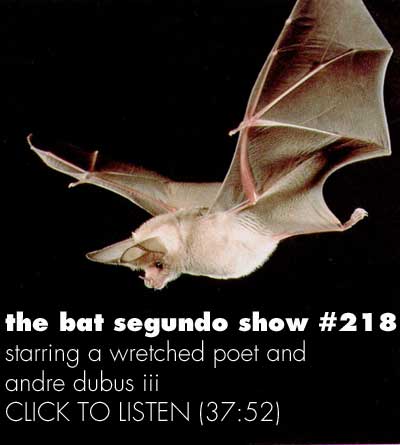

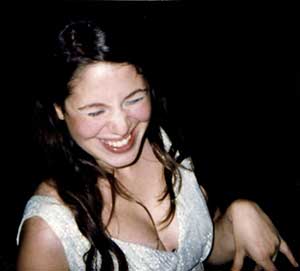 Shukert: Jason Priestly and Fred Savage were the two guys on TV who I had big crushes on as a child. I had a picture of Fred Savage in my locker that I cut out from the newspaper. I remember that he was holding a candy box. Like a Valentine’s heart box. And I would pretend that he was holding it for me. And then when I got a little older, I thought Jason Priestly was the handsomest man I had ever seen. I mean, when I say “a little older,” I mean ten. But I had a big poster of him in my room too.
Shukert: Jason Priestly and Fred Savage were the two guys on TV who I had big crushes on as a child. I had a picture of Fred Savage in my locker that I cut out from the newspaper. I remember that he was holding a candy box. Like a Valentine’s heart box. And I would pretend that he was holding it for me. And then when I got a little older, I thought Jason Priestly was the handsomest man I had ever seen. I mean, when I say “a little older,” I mean ten. But I had a big poster of him in my room too.
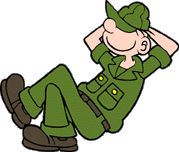 Correspondent: Here we have a military strip. But there’s no reference to Iraq. And I wanted to ask you about this kind of balance.
Correspondent: Here we have a military strip. But there’s no reference to Iraq. And I wanted to ask you about this kind of balance. 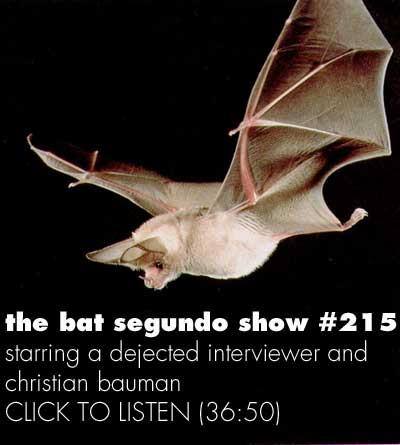
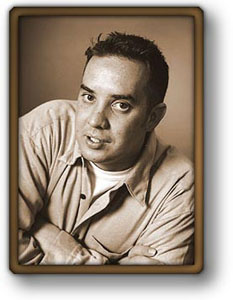 Correspondent: You have this particular rock ‘n’ roll novel dwelling upon Hoboken, as well as Mona Smith, who is this Erica Jong-like figure, who is the mother of Thatcher. But I wanted to ask you about this. Because it’s very fascinating to me. I have the belief that if you write a rock ‘n’ roll novel, there needs to be some additional element. Some additional hook. Because if you dwell too much on rock ‘n’ roll music, well, it’s going to possibly be something of a circlejerk. So I wanted to ask you. Was this a consideration in setting this book in Hoboken? The Hoboken aspect came first? What happened here?
Correspondent: You have this particular rock ‘n’ roll novel dwelling upon Hoboken, as well as Mona Smith, who is this Erica Jong-like figure, who is the mother of Thatcher. But I wanted to ask you about this. Because it’s very fascinating to me. I have the belief that if you write a rock ‘n’ roll novel, there needs to be some additional element. Some additional hook. Because if you dwell too much on rock ‘n’ roll music, well, it’s going to possibly be something of a circlejerk. So I wanted to ask you. Was this a consideration in setting this book in Hoboken? The Hoboken aspect came first? What happened here?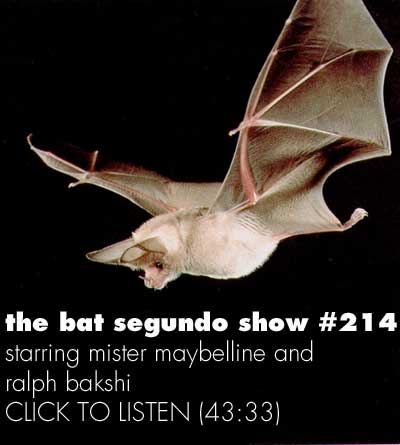
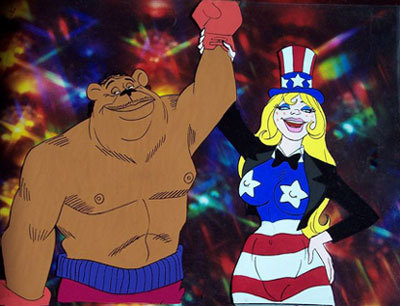 Correspondent: I wanted to ask you about music in your films. It’s certainly important in American Pop. You pilfered from your record collection for that, as well as the “Maybelline” sequence in Heavy Traffic. And there’s “Ah’m a Niggerman” from Coonskin, which you wrote. I’m wondering if you did this because you have an aversion to Carl Stalling-style orchestral music.
Correspondent: I wanted to ask you about music in your films. It’s certainly important in American Pop. You pilfered from your record collection for that, as well as the “Maybelline” sequence in Heavy Traffic. And there’s “Ah’m a Niggerman” from Coonskin, which you wrote. I’m wondering if you did this because you have an aversion to Carl Stalling-style orchestral music.